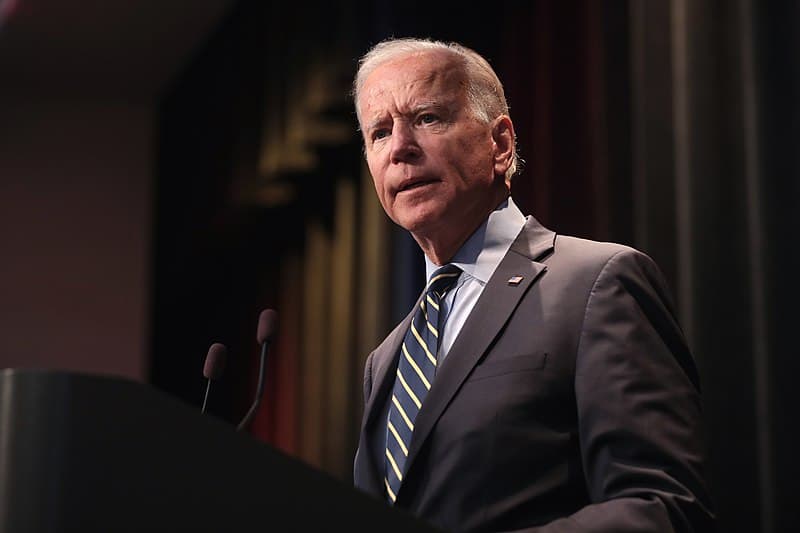
Miriam Shestack is a student at Harvard Law School.
The Biden administration released the final version of regulations intended to protect the Deferred Action for Childhood Arrivals (DACA) program against legal challenges on Wednesday. DACA, which originated with a 2012 memo by the Obama administration, offers protection from deportation and the ability to work legally to some 600,000 undocumented young people who came to the US as children. The Biden regulation replaces the Obama-era memo and takes effect Oct. 31. Bloomberg explains that the new regulation comes in repose to legal challenges that have plagued DACA since inception. The final regulation maintains existing criteria for DACA status and the process for seeking work authorization. It will only apply only to DACA renewal requests, not to new applications, because a federal court order barring DHS from granting new requests for status remains in place.
The National Labor Relations Board alleged in a complaint filed on Wednesday that Starbucks illegally withheld wages and benefits from unionized baristas. The Washington Post notes in this developing story that the complaint arises amid a campaign by Starbucks and its interim CEO, Howard Schultz, to tamp down unionization efforts at stores around the United States. More than 230 locations have voted to join the Starbucks Workers United union since late 2021, driving a surge in unionization nationwide.
Also on Wednesday, Amazon announced in an email to employees that it is shutting down Amazon Care, the company’s in-house foray into providing primary and urgent health care. The decision comes one month after Amazon announced plans to buy a much larger competitor, One Medical, in a $3.9 billion deal. Amazon Care started in 2019 as an effort to serve Amazon’s own employees. As the New York Times reports, the company has sought ways to enter the health care industry for the past several years.
Analysis from Bloomberg Law finds that states’ attempts to ensure employees can take workplace disputes to court are seeing their efforts diminished by the US Supreme Court. Forty-three states have laws addressing alternative dispute resolution between employers and employees. However, these state laws are often preempted by the Federal Arbitration Act, which generally holds that valid arbitration agreements are enforceable and should be treated like any other legally formed contract between employers and employees. The US Supreme Court has consistently held employers can enforce individual arbitration agreements as well as class action language prohibiting an employee class from launching a collective complaint through arbitration against an employer. Meanwhile, Workers might not even know they’re barred from going to court. Many times, employees sign a stack of papers when they’re first hired and that includes an arbitration agreement, said Terri Gerstein, director of the State and Local Enforcement Project at Harvard Law School.
Around the world, the International Labour Organization (ILO) has issued a new report detailing how the February 2021 military takeover in Myanmar has taken a severe toll on trade unions and Civil Society Organizations (CSOs) providing services to workers and migrants. The report highlights the targeted persecution of these groups, which have provided the foundation for much of the progress made in labor rights in Myanmar over the last decade. Persecution including arbitrary arrests, detentions, raids on homes and offices, seizure of equipment, threatening phone calls, and interrogations and surveillance, have substantially limited their ability to operate.
IndustriALL Global Union reports that on Monday and Tuesday unions in Visakhapatnam, the most populous city and industrial center in the state of Andhra Pradesh, India, rallied against the country’s new labor laws which consolidate 44 labor laws into four labor codes. Protesting unionists view the changes in labor legislation as an attempt to undo the struggle of the workers’ movement to win the rights enshrined in the earlier laws. Workers also oppose the privatization of a Vishakapatnam steel plant. The demonstrations were held ahead of a meeting with all of India’s labor ministers in the state.
IndustriALL also reports that a regional conference in Dar Es Salaam, Tanzania, held on August 17-18, discussed strategies for gender integration and gender equity and equality in trade union activities incorporating feminist ideas. IndustriALL Vice President Rose Omamo, said: “Union work is not detached from the feminist fight for equality. Unions must build alliances with women’s rights organizations to challenge oppressive systems. Gender quality underpins many problems including the lack of adequate health care, education, decent work deficits, and promoting gender equality and social inclusion.” The regional feminist conference drew participants from Botswana, Ghana, Kenya, Lesotho, Mozambique, Namibia, Nigeria, South Africa, Tanzania, Uganda, Zambia, and Zimbabwe.






Daily News & Commentary
Start your day with our roundup of the latest labor developments. See all
July 15
The Department of Labor announces new guidance around Occupational Safety and Health Administration penalty and debt collection procedures; a Cornell University graduate student challenges graduate student employee-status under the National Labor Relations Act; the Supreme Court clears the way for the Trump administration to move forward with a significant staff reduction at the Department of Education.
July 14
More circuits weigh in on two-step certification; Uber challengers Seattle deactivation ordinance.
July 13
APWU and USPS ratify a new contract, ICE barred from racial profiling in Los Angeles, and the fight continues over the dismantling of NIOSH
July 11
Regional director orders election without Board quorum; 9th Circuit pauses injunction on Executive Order; Driverless car legislation in Massachusetts
July 10
Wisconsin Supreme Court holds UW Health nurses are not covered by Wisconsin’s Labor Peace Act; a district judge denies the request to stay an injunction pending appeal; the NFLPA appeals an arbitration decision.
July 9
the Supreme Court allows Trump to proceed with mass firings; Secretary of Agriculture suggests Medicaid recipients replace deported migrant farmworkers; DHS ends TPS for Nicaragua and Honduras